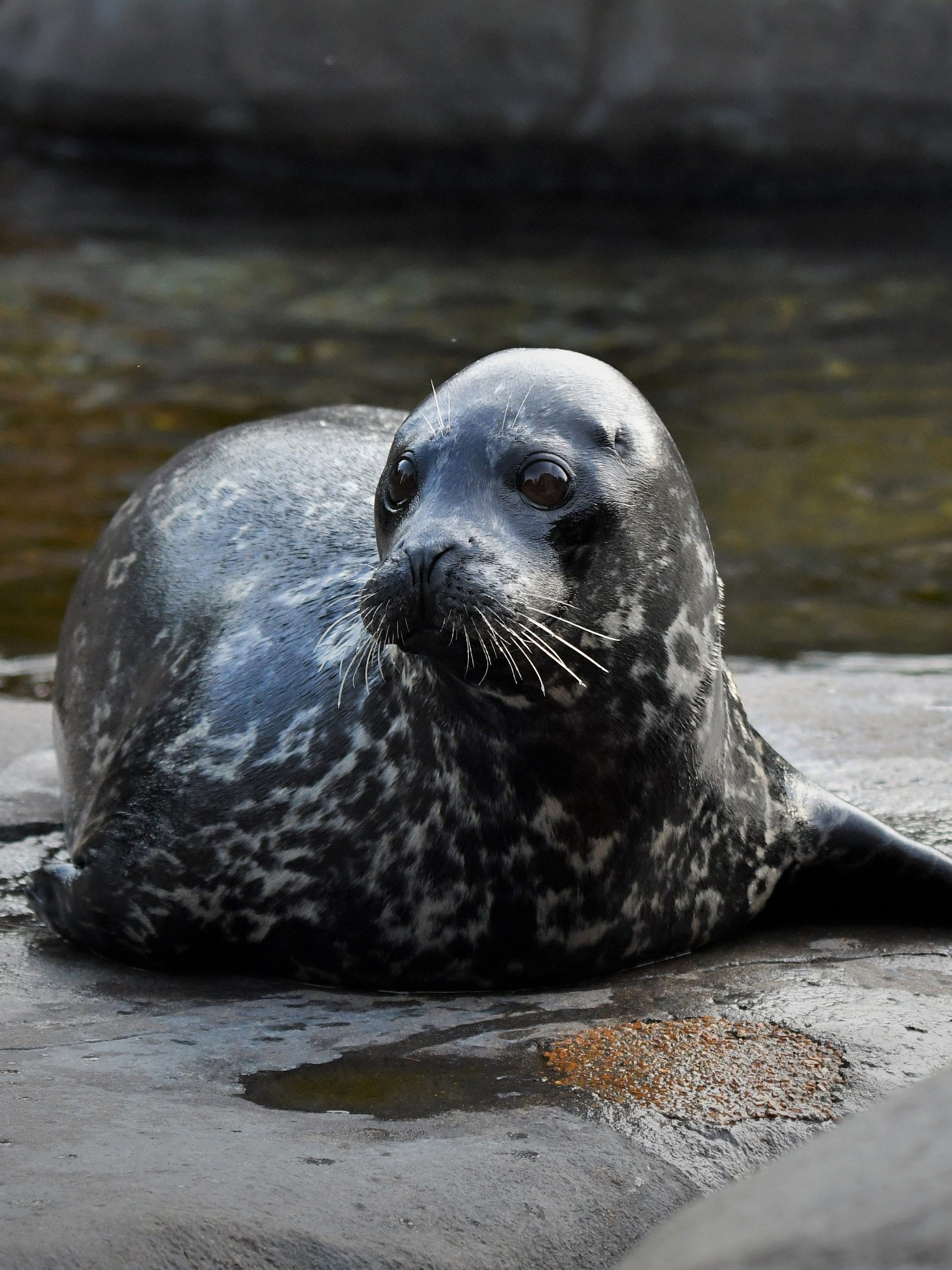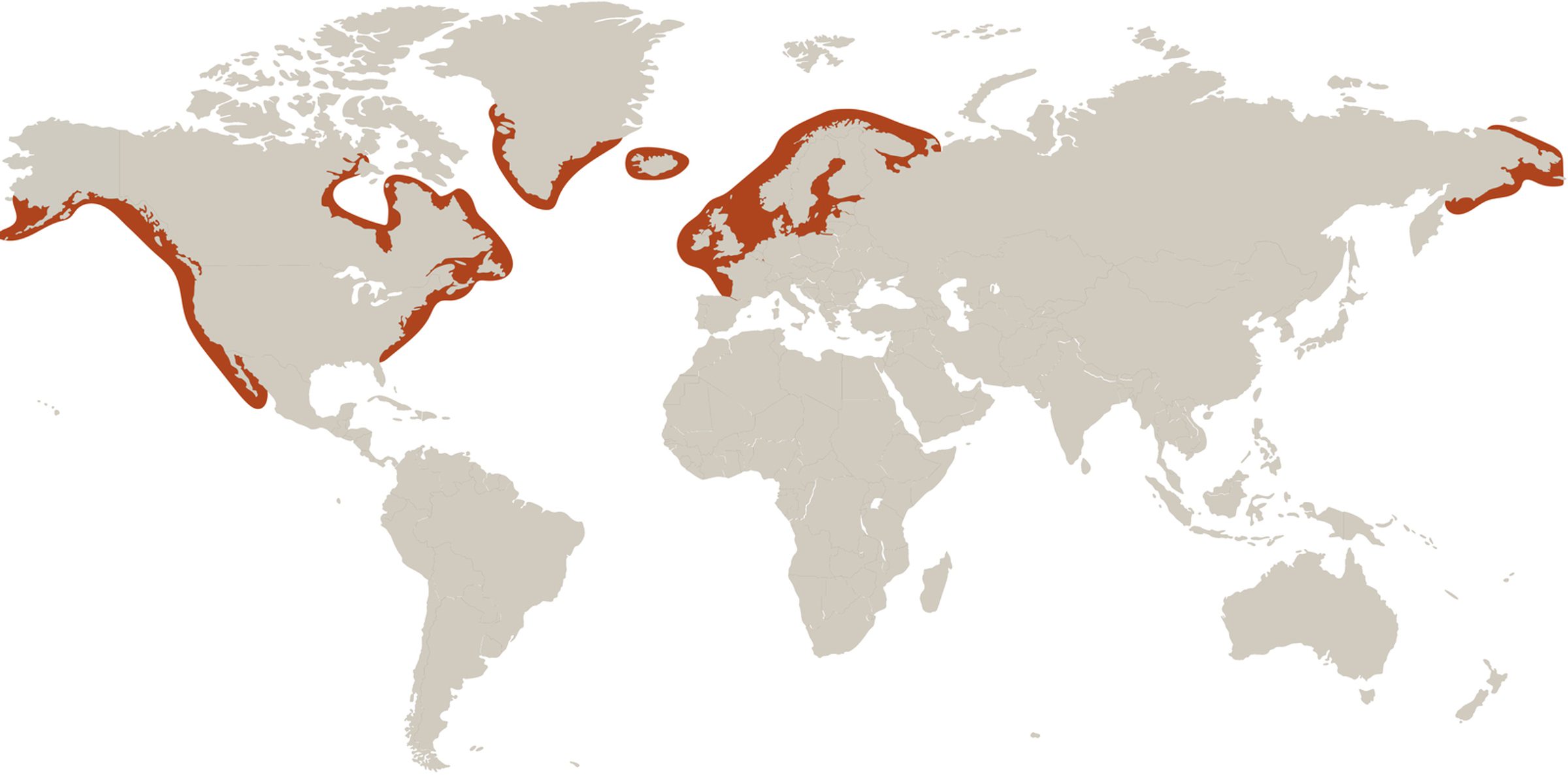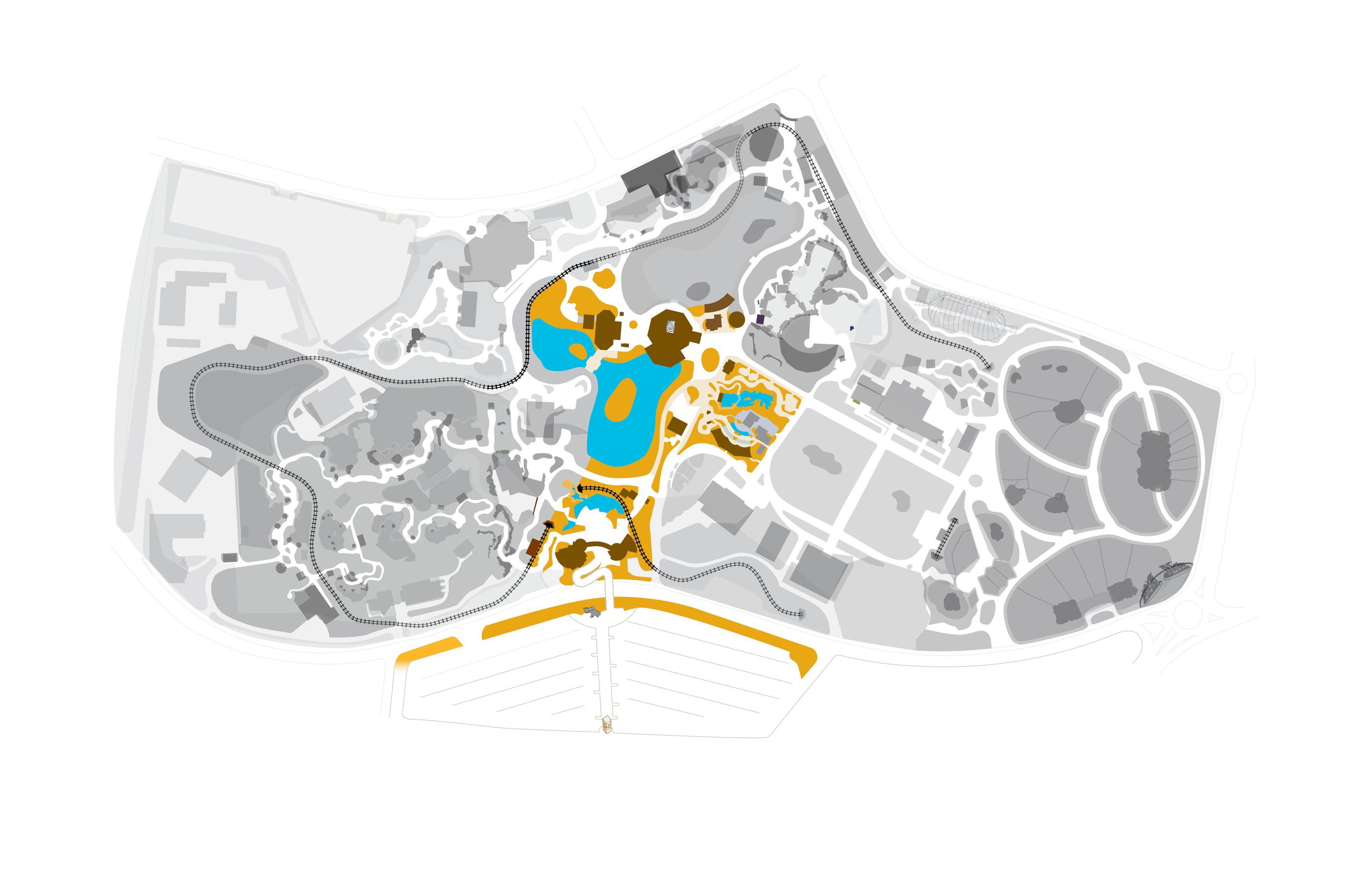
Harbor Seal
Phoca vitulina
Did you know?
- Seals are part of a group called pinnipeds, which means “fin-footed” or “wing-footed.”
- The dark rings and spots seen on their coats serve as identification tools similar to our fingerprints.
- Male and female harbor seals are very close in size. Adult males weigh 154 to 375 pounds where females weigh 110 to 331 pounds.
- Harbor seals can stay submerged for up to 30 minutes. Even a 2-day-old pup can stay under water for up to two minutes.
- They are the least vocal of all pinnipeds, vocalizing mainly underwater for mating.
Whisker Senses
Harbor seals love the cold water, relying on their multiple layers of blubber to provide insulation. Harbor seals can stay submerged for up to 30 minutes and use their sensitive whiskers to find their favorite food: herring, flounder and perch.
Do The Worm
Like all “true” seals, harbor seals lack external ear flaps and are unable to rotate their hind flippers forward. Since they can’t walk on land, they move about in an inchworm-like motion.
Threat Level
- Unknown
- Common
- Near Threatened
- Threatened
- Endangered
- Critically Endangered
- Extinct in the Wild
Common
The Harbor Seal is widespread and abundant.
Range
North Atlantic and Pacific Oceans
Habitat
Ocean waters, sandy or rocky coastlines

We care about harbor seals
Ocean animals are often negatively impacted by litter in the water, especially plastic.
The Saint Louis Zoo encourages all guests to take our #byetobags pledge and switch from plastic bags to reusable bags. This helps keep our rivers and oceans clean and safe for animals. The Zoo also supports harbor seals in Sea Lion Sound. Learn more about how we are helping wildlife around the world.
Find this animal in Lakeside Crossing

SAINT LOUIS ZOO ZONE
Lakeside Crossing
Located in the center of the Zoo, Lakeside Crossing has a variety of food services, shopping destinations and a grassy plaza to rest and relax.

